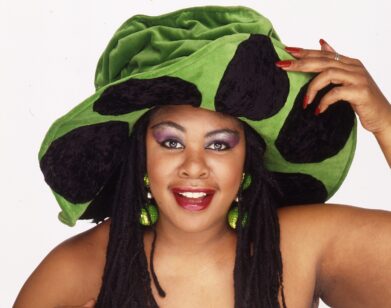Clancy Martin on Love and Lying

ABOVE: CLANCY MARTIN
Bad Sex, the second novel from Clancy Martin out earlier this week via Tyrant Books, is about an alcoholic writer named Brett (after Hemingway’s leading lady in The Sun Also Rises) and her hotel-hopping affair with her husband’s banker Eduard. Through Brett, Martin creates sentences that stick with you like regrets; you can never tell when one is about to pop up as you’re in line at the supermarket. He immerses you in Brett’s surroundings and you find yourself losing minutes, even hours, before looking around, confused that you aren’t alongside her at a luxury resort in Central America.
When we talk to Martin’s however, his speech—full of rounded Canadian “o”s and reflexive self-effacement—is in stark contrast with his writing. In addition to writing books, Martin also contributes to magazines such as GQ, The Atlantic, The Wall Street Journal, The London Review of Books, and Harper’s, among others.
MICHAEL HAFFORD: How did it come about that you publish another book so soon after FSG released Love and Lies in February?
CLANCY MARTIN: More than a year ago, Gian[carlo DiTrapano of Tyrant Books] started emailing me saying, “I’ve read this book of yours, Travels in Central America [as it was then titled], and I want to publish it. How do we do that?” I had mentioned it to my agent and she said, “No, no, no, we don’t want to publish that until this other novel I’ve been working on comes out.” And then I’d go back to Gian and say, “Oh, I don’t know. Let me try to finish this other novel first and then we’ll think about it.” Another couple of months would go by and I’d get an email, “Is it time?” And then I’d say, “No, it’s not time.” He stayed after me and stayed after me.
When that charming rave of Love and Lies in The New York Times Book Review came out—when Adelle Waldman eviscerated me in The New York Times—I called my agent and said, “I don’t care about the politics, I don’t care about the practicality, I don’t care about any of it. There’s this guy that loves this book and I want something out there that I believe and he believes in. He’s totally been patient with me and believed in me all this time. We’re publishing it. I don’t care about all the business end of it.” She said, “Okay. It’s your book and I understand.” That was that. It was really just Gian’s kindness and persistence. That is the person you want publishing your book. To be in it, you really have to believe in books and love whatever it is you’re publishing. Both on the book side and especially on the magazine side, I’ve had editors that I did not get the same feeling from. That feeling of, “This is something I believe in, I don’t care how long, I’m going to publish it”—that kind of passion and commitment means a lot to you.
HAFFORD: Brett deceives herself and others: “I won’t drink, I won’t have an affair, Eduard and I are truly in love.” Do you think lying is sort of foundational to every relationship?
MARTIN: Yeah, exactly. Everybody—no question. That’s the old AA maxim, “Always have a drink in your hand and you’ll never want a drink.” That’s one of the most classic deceptions in the literature: “I’ll take a drink tomorrow.” I actually don’t think that’s necessarily a very helpful maxim in AA, but it’s a very good maxim in showing how strategic self-deception can be employed, even self-consciously. That’s the amazing thing, to me, about self-deception. Unreflective self-deception leads people into hypocrisy and all sorts of moral failings. When you look at these people who are busy pontificating like I was a moment ago—Saint Clancy—those are the people that get into the most egregious kinds of moral problems. Probably for the very reason that you’re able to perpetuate a self-deception as long as you’re not self-reflective. It’s only when you start asking yourself questions that you start realizing “Wait a second here, am I really being as honest with myself as I was pretending all this time?” But what is the most fascinating kind of self-deception to me, and a kind that isn’t necessarily unhealthy, is what Nietzsche called “strategic self-deception.” The kind of self-deception that you can engage in with your eyes wide open. You do it because you say, “There’s things that I couldn’t accomplish without this kind of self-deception.” Both of us being writers, if we weren’t capable of some strategic self-deception, we would have moved on to more lucrative careers long ago.
HAFFORD: You have to have this blind confidence that you’ll be the one to make it.
MARTIN: It’s the same when you listen to any kind of successful athlete. My older brother has a useful name for them—he calls them lottery ticket careers. He’s a successful businessman. It seems like he pays himself somewhere in the neighborhood of two million dollars a year now and lives very, very comfortably. He feels like that kind of living is very achievable to anyone that’s willing to apply themselves to the goal of making an excellent living and has the kind of necessary advantages of being white and middle class and blah blah blah. You and I are engaged in what he calls these lottery ticket careers. On the one hand it’s very, very unlikely that you’re ever going to hit it. On the other hand if you do hit it, you really hit it. You have to be engaged with it, though, maybe you’re entire life. And if you never actually do hit it? You kind of jovially lie yourself along the way and recognize that it may produce things outside the hitting it kinds of goods, I suppose.
HAFFORD: I guess you tell yourself, “Even Melville died penniless.”
MARTIN: You can and you do. All of my heroes basically died penniless. [laughs]
HAFFORD: I guess we romanticize the loser.
MARTIN: [laughs] What does that say about us? I know, I know. When I was writing Love and Lies, I was going over a lot of my old notes to see if there were any insights in them. Old copies—especially of Soren Kierkegaard. I came across this note that I had written when I was 21 years old, maybe 20 years old, and was reading Either/Or for the first time. I had written, “What does it say about me that the books I read, searching to find out what the meaning of love is, were all written by these single bachelors who had absolutely no success with women?” [laughs] I was obsessed with Nietzsche, Kierkegaard, Schopenhauer. These are not guys that you want to go to for understanding the nature of love. They clearly didn’t get it.
BAD SEX IS OUT NOW. CLANCY MARTIN IS READING TONIGHT, SEPTEMBER 17, WITH MOLLY ANTOPOL AT NYU’S CREATIVE WRITING HOUSE. FOR MORE INFORMATION, CLICK HERE.






